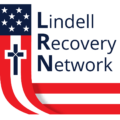
I once asked a good friend of mine who’d been delivered of a massive drug, alcohol and porn addiction to describe what finally motivated him to change.
He paused, thought for a moment, and responded, “I just decided that I wanted to be done.”
His insight might seem like a no-brainer: sure, you must make a decision to stop the “thing” before you can then make strides toward healing and recovery – but many addicts, loved ones and even enablers gloss over this key element. I really do believe the addict must WANT to stop. We can’t want it more than they do; we simply cannot work harder than the addict. Our enabling can hinder true change.
Yes, we can “help” them get ready, to a point. Compassion, openness, maintaining appropriate boundaries, prayer and open sharing about our own struggles can have a powerful impact. But if our efforts become coercive or manipulative, our best efforts may work against us.
Most people respond to consequences – especially the threat of losing something cherished. Maybe a spouse has made a demand, a boss issues an ultimatum, or something prized is in jeopardy of being lost.
Some people take action when faced with seemingly minor consequences; others put themselves and others through the wringer and almost to death’s door before compliance finally comes.
God uses all of it, and I believe He is always trying to draw us back to Himself through the power of the Holy Spirit.
Having a crack of willingness helps. Being allowed some measure of “say” in what happens is crucial. Most people, even small children – will resist when something is forced or imposed. A client’s active engagement in the treatment process is one of the strongest predictors of overall outcome. Clinicians too often focus on elements that don’t really matter – like the counselor’s years of experience, the type of evidence-based practice used, or through seeking out the fanciest and most expensive facility, thinking the bougie amenities will somehow lead to a restored person. None of that really matters. Decades of research and various meta analyses by respected researchers indicates that the things we thought worked, aren’t as significant as once believed.
So what does determine why some people experience radically changed lives while in treatment – while others go on to relapse over and over again?
A few simple things. Before we get to the clinical stuff, let me underscore the importance of seeking God FIRST, and letting Him guide the recovery process: whether that leads to therapy, a treatment center, or something else.
That said, the relationship with the therapist, helper, counselor, or group is the most important change-determining factor. Being in the presence of people who offer compassion, nonjudgment, and support is vitally important. Secondly, something clinicians call “extra therapeutic factors” – all the things that happen outside the counseling office or the treatment center: support, goals, positive influences, resilience, purpose, meaningful relationships, and a sense of contributing something valuable to others and to the world.
Most people can stay sober in a facility – but once the structure and security is gone, many struggle mightily to resist temptation and to create a meaningful life more compelling and rewarding than the old, addicted one.
Much of the success we see with people in treatment can actually be attributed to intrinsic motivation – rather than anything special about the program itself.
Here are some enlightening and surprising facts about addiction treatment:
-Studies involving specific treatment programs and their success rates do not include control groups
-Study samples don’t reflect the total amount of people who attempted the program (most programs have a 35-40% drop out rate)
-Drop outs should be counted as failures, which would dramatically reduce reported “success” rates
-15-20% of addicts get clean without any treatment at all – which is the same as the number of people who will remain sober one year post treatment (basically, the same number of people get clean without any treatment at all)
Many have been conditioned by the multi-billion dollar treatment industry to believe that they are doomed to failure unless they fork out ridiculous amounts of money to attend a high-end rehab facility, but that is simply not true. Of the 15-20 million people who meet diagnostic criteria for a substance use disorder in the U.S, only about 20% will ever go to an actual rehab.
Mike Lindell was hoping to reach some of the folks with barriers to traditional treatment – shame, stigma, cost, denial, or other reasons, and that’s where the Lindell Recovery Network comes in!
Mike created a space for people to find hope and Jesus from the privacy of their own homes. The Lindell Recovery Network is a free self-service website offering thousands of powerful video testimonials and searchable databases for churches and Christian treatment centers in all 50 states. The online Hope Center offers free resources too – the Operation Restored Warrior program and 25 digital books – biblical counseling guides that combine the truth of the bible with effective evidence-based practices like cognitive behavioral therapy.
Think for yourself when it comes to addiction treatment. It’s not necessary to blindly believe whatever you’ve been told by the establishment or well-intentioned professionals. Seek the Lord in prayer, and then choose something reasonable and workable for you. If you’re continuing to relapse, consider a higher level of care. Don’t isolate, find at least one person you can confide in, and seek medical attention if you’re at risk for life-threatening withdrawal symptoms. More than anything – pursue Jesus, pray, and allow Him to lead your steps.
-Melissa Huray
